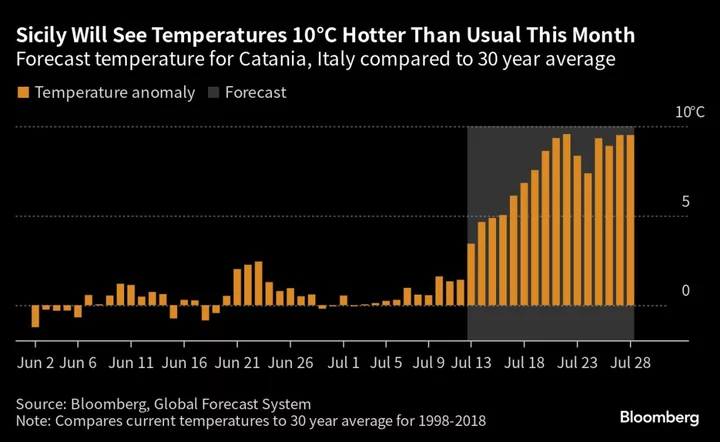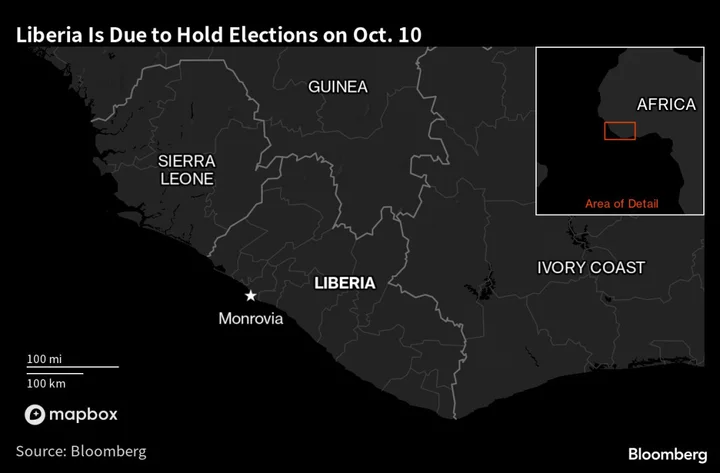Extreme heat from a high-pressure system named Cerberus — after the three-headed hound from Dante’s inferno — is bearing down on Italy, Greece and the Balkans.
The Italian Ministry of Health warned of “emergency” heat wave conditions in 10 cities, including Rome, Florence and Bologna. The Greek government is asking the private sector to use remote working if possible as temperatures climb toward 45C (113F).
The Italian islands of Sicily and Sardinia are expected to test Europe’s all-time high above 48C this month, according to the European Space Agency. Climate change is bringing extreme heat and weather across the Northern Hemisphere, threatening the health of millions and disrupting energy and transport systems.
The average worldwide temperature climbed above 17C for the first time ever July 3 and has remained there since. That means the hottest 10 days ever recorded have all been this month.
Southern Italy and the Balkans are expected to see the highest peak temperatures in Europe over the next 10 days, according to forecaster Maxar Technologies Inc.
Europe’s record heat of 48.8C was recorded in Syracuse in Sicily in July 2021. Data from the Copernicus Sentinel-3 mission’s radiometer instrument showed temperatures earlier this month on the eastern slopes of Mount Etna in Sicily exceeded 50C, the space agency said.
Greek authorities are saying that people shouldn’t work if conditions are dangerous. Last year, more than 60,000 people died because of the summer heat waves across Europe, according to a recent study published in Nature Medicine.
Read More: Falling Rhine Boosts Cargo Costs as Heat Persists: Supply Lines
The heat is also depressing water levels in the Rhine, pushing up the cost of transporting commodities on a key trade artery.
Temperatures in Frankfurt are forecast to peak at 36.5C on Saturday, more than 6C above the seasonal average, before cooling next week.
Meanwhile, the UK and Nordic countries will see cooler than normal temperatures over the next 10 days, with London almost 4C below the seasonal average next Monday.
--With assistance from Priscila Azevedo Rocha and Sotiris Nikas.









